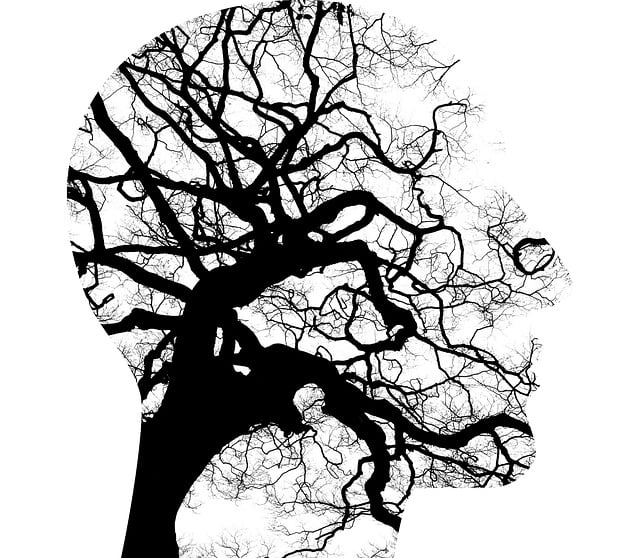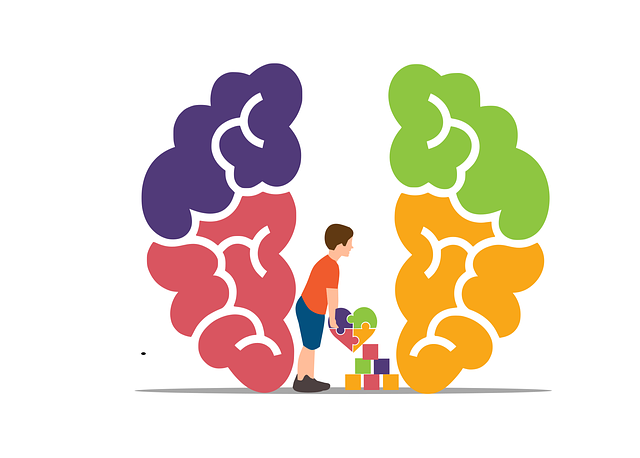Understanding Mental Health Data through diverse sources like clinical records, surveys, and community programs like Lakewood Abuse Survivors Therapy (LAST) is vital for effective interventions. LAST provides critical insights into emotional regulation and depression prevention needs, with varied data collection methods capturing distinct mental health experiences. Data analysis, including statistical modeling and predictive analytics, helps identify effective therapeutic approaches and tailor treatments, enhancing overall mental wellness. Interpreting LAST data allows therapists to develop culturally sensitive interventions and personalized therapy sessions for abuse survivors, fostering healing. Ethical guidelines and patient privacy are paramount in mental health data handling, as demonstrated by LAST, with societal efforts focusing on reducing stigma and improving conflict resolution through insights.
Mental health data analysis offers a powerful tool for understanding complex issues afflicting communities, with specific focus on survivors of abuse like those served by Lakewood Abuse Survivors Therapy (LAST). By examining collected data from various sources, we can uncover insights and patterns crucial for improving therapy methods and outcomes. This article explores data collection and analysis techniques, delves into ethical considerations, and highlights the implications for LAST’s ongoing mission to support and heal survivors.
- Understanding Mental Health Data: Collection and Sources
- Data Analysis Techniques for Insights and Patterns
- Interpreting Results: Implications for Lakewood Abuse Survivors Therapy
- Ethical Considerations and Privacy in Mental Health Data Analysis
Understanding Mental Health Data: Collection and Sources

Understanding Mental Health Data is a multifaceted process that forms the foundation for effective analysis and interpretation. This involves recognizing the diverse sources from which such data emanates, including clinical records, surveys, interviews, and community outreach programs like Lakewood Abuse Survivors Therapy (LAST). LAST, for instance, provides valuable insights into the emotional regulation and depression prevention needs of survivors within their community, highlighting the importance of tailored interventions based on collected data.
The collection methods vary widely, from structured questionnaires to unstructured interviews, each capturing unique aspects of mental health experiences. Community-based initiatives, such as LAST’s Community Outreach Program Implementation, play a pivotal role in gathering firsthand accounts and contextual information that enriches the data landscape. This holistic approach ensures that analysis is not only informed but also sensitive to the nuances and complexities within communities, enabling more impactful strategies for addressing mental health challenges.
Data Analysis Techniques for Insights and Patterns

Data analysis plays a pivotal role in mental health research, enabling professionals to uncover insights and patterns that can significantly impact treatment strategies. Techniques such as statistical modeling and predictive analytics are powerful tools for identifying trends within large datasets, offering valuable information about various aspects of mental wellness, including depression prevention and confidence-boosting initiatives. By analyzing data from organizations like Lakewood Abuse Survivors Therapy (LAST), researchers can gain a deeper understanding of the effectiveness of different therapeutic approaches.
For instance, these methods can help identify specific interventions or programs within LAST that show higher success rates in treating particular mental health conditions. This knowledge is invaluable for tailoring treatments to individual needs and enhancing overall mental wellness. Moreover, data analysis contributes to the development of evidence-based practices, ensuring that resources are allocated efficiently and effectively for depression prevention and other initiatives aimed at improving the lives of those seeking therapy.
Interpreting Results: Implications for Lakewood Abuse Survivors Therapy

Interpreting results from mental health data analysis is a critical step in improving outcomes for survivors of abuse, such as those engaged in Lakewood Abuse Survivors Therapy (LAST). The insights gained from this process can shape tailored interventions and support strategies that address the unique needs of individuals within this population. By carefully examining trends and patterns in the collected data, therapists and researchers can identify specific challenges faced by LAST participants related to emotional regulation, trauma recovery, or cultural barriers, among other factors.
This analysis plays a pivotal role in enhancing the effectiveness of Lakewood Abuse Survivors Therapy. It enables mental health professionals to design culturally sensitive interventions (Cultural Sensitivity in Mental Healthcare Practice) that respect and incorporate survivors’ personal experiences and backgrounds. Furthermore, by understanding the emotional landscapes of these individuals, therapists can facilitate group discussions or personalized therapy sessions to promote healing and develop public awareness campaigns (Public Awareness Campaigns Development) that resonate with their specific needs, fostering a supportive environment for abuse survivors to heal and rebuild their lives.
Ethical Considerations and Privacy in Mental Health Data Analysis

In the realm of mental health data analysis and interpretation, ethical considerations and privacy are paramount. As Lakewood Abuse Survivors Therapy (LAST) attests, navigating this landscape requires meticulous care to uphold confidentiality and protect sensitive information. Every step in the data collection, storage, and sharing process must be designed with the utmost respect for individual autonomy and privacy rights. This is crucial not just for ensuring trust between patients and healthcare providers, but also for fostering honest disclosures that are essential for effective treatment and support.
The ethical implications extend beyond individual cases to broader societal concerns. Efforts to reduce the stigma associated with mental illness often rely on data analysis for informed public awareness campaigns development and targeted intervention strategies. Conflict resolution techniques can be enhanced by understanding trends within mental health datasets, but it is imperative that these insights are interpreted and disseminated responsibly. Balancing the need for progress in mental health services with the protection of personal data is a delicate task, one that requires ongoing dialogue among researchers, healthcare professionals, policymakers, and communities like LAST to ensure equitable and ethical practices.
Mental health data analysis plays a pivotal role in understanding and addressing complex issues like those faced by survivors of abuse, such as those seeking treatment through Lakewood Abuse Survivors Therapy. By employing robust data collection methods and advanced analytical techniques, we can uncover meaningful patterns and insights. However, it’s crucial to navigate the ethical landscape with vigilance, prioritizing participant privacy and ensuring informed consent. Through responsible analysis, we can enhance therapies like LAST, fostering better outcomes for those in need.














